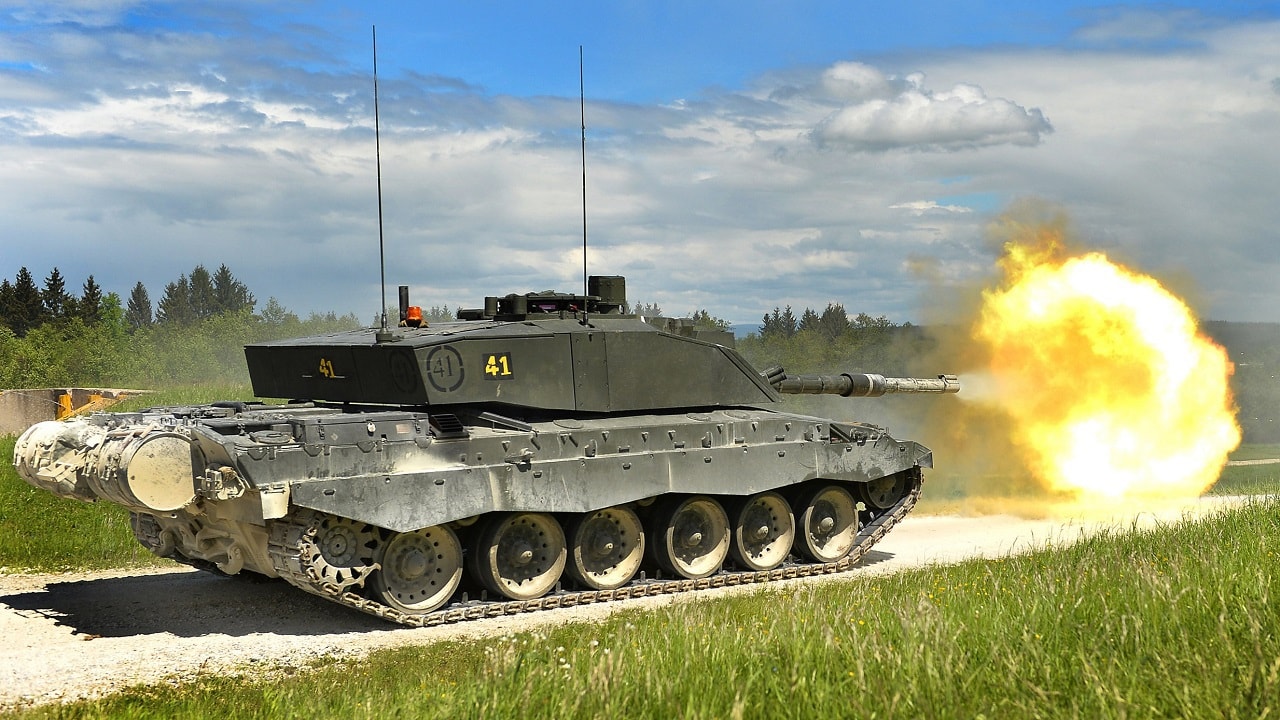Germany’s Military Remains Ill-Equipped For Future Conflict – Germany is one of several European nations that announced it would step up efforts to supply military hardware to Ukraine, but this week it was reported that Berlin said it would only be able to deliver the first Flugabwehrkanonenpanzer Gepard (Flakpanzer Gepard) anti-aircraft armored fighting vehicles by July.
While “beggars can’t be choosers” as the old saying goes, and Ukraine has shown that it is grateful for every ounce of aid it is receiving, Berlin’s stance that it would take at least another six weeks for the tanks to be delivered wasn’t well-received by some Ukrainian lawmakers.
“For us, July is like, ‘what?'” Anastasia Radina, a member of the Ukrainian parliament, told Reuters at the World Economic Forum. “Let me put it like this: Let’s ask a mother who is forced to sit in a basement with her newborn child who has no baby formula. … How far from now is July for her?”
One reason for Germany’s delay in sending the tanks to Ukraine is that the Bundeswehr lacks the ammunition for the platforms – something that apparently Berlin reportedly knew when it first made its pledge.
The Flakpanzer Gepard, an all-weather-capable self-propelled anti-aircraft gun (SPAAG), was developed in the 1960s and first fielded in the 1970s. It has been upgraded several times, including with the latest electronics, and was the cornerstone of the air defense of the German military until 2010.
The retired platform has been kept in storage for the past decade, and Germany maintained only “scant stocks” of its 35mm ammunition. In fact, it was only this week that German government officials said that more ammunition had been found and that it would finally send the Flakpanzer Gepards to Ukraine.
One military industry source, who spoke to Reuters on the condition of anonymity, suggested that sending weapons to Ukraine “only makes sense when there is the ammunition to go with it – that was clear to everyone right from the start.”
Sorry State of the Bundeswehr
The Bundeswehr was created just a decade after the end of the Second World War, and during the Cold War, it became one of the largest, well-equipped armed forces in the world. That changed when the Berlin Wall came down and the Soviet Union collapsed. Germany was surrounded by friends, and its military has fell into a sorry state for years.
It was only after Russia launched its unprovoked invasion of Ukraine that some officials finally have the courage to speak up about the problem.
“In my 41th year of peace-time service, I would not have thought that I would have to experience a war,” Lieutenant General Alfons Mais said via a post on LinkedIn on the day that Russia launched its attack. “And the Bundeswehr, the army which I have the honour to command, is standing there more or less empty-handed. The options we can offer the government in support of the alliance are extremely limited.”
Those comments resounded throughout the halls of power in Berlin, and on Feb. 27 the newly elected Chancellor Olaf Scholz launched his turning point or ‘zeitenwende,’ pledging a 100 billion euro ($107 billion) special fund for Germany’s defense.
That fund will boost Germany’s defense spending over the next four to five years, and bring it to the two percent of the economic output mandated by NATO. It would also make Germany the world’s third-largest in terms of military spending after the United States and China, according to data from the Stockholm International Peace Research Institute (SIPRI).
However, the German parliament has yet to pass the special fund.
“Germany … was meant to never again become a military power,” Marie-Agnes Strack-Zimmermann, the head of parliament’s defence committee, and whose Free Democrats (FDP) are junior partners in Scholz’s three-way coalition, told Reuters. “That we are asked to show military leadership now. This is a change in mentality which the Germans have to adapt to first.”
While no one wants to see a remilitarized Germany of the Imperial Era (1871-1918) and certainly nothing remotely like that of Nazi Germany (1933-1945), it now seems that many of its allies and partners would simply like to see Germany pull its weight in the NATO alliance. And perhaps not pledge to supply weapons to Ukraine that it can’t actually deliver.
Now a Senior Editor for 1945, Peter Suciu is a Michigan-based writer who has contributed to more than four dozen magazines, newspapers and websites. He regularly writes about military hardware, and is the author of several books on military headgear including A Gallery of Military Headdress, which is available on Amazon.com. Peter is also a Contributing Writer for Forbes.

